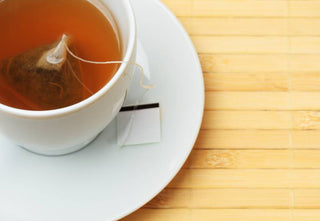You avoid sugar sweetened beverages because you know that by drinking them you’ll pack on the pounds. But, did you know that sipping a Skinny Margarita is actually worse for blowing your diet? And, that having a cup of tea is best?
That’s because drinking alcohol is associated with the largest increase in daily calorie intake compared with drinking sugar-sweetened and other beverages, according to a new study published in the Journal of the Academy of Nutrition and Dietetics.
”The results showed that those who drank alcohol consumed an extra 384 calories a day, the highest of any group.”
Researchers from the University of Illinois at Urbana-Champaign examined the dietary habits for more than 22,000 U.S. adults using 10 years of data from national health statistics (National Health and Nutrition Examination Survey or NHANES).
The study examined different types of beverages (diet or sugar-free drinks, sugar-sweetened beverages, coffee, tea and alcohol) in relation to total daily caloric intake, calorie intake from discretionary foods and overall diet quality.
Discretionary foods are not required for health and are typically low in nutrients but high in sugar, sodium, fats and cholesterol. Good examples include ice-cream, cookies, chocolate and fries.
The results showed that those who drank alcohol consumed an extra 384 calories a day, the highest of any group. Not surprisingly, those who drank sugar-sweetened beverages had the second highest at 226 extra calories a day. At just 64 extra calories a day, tea drinkers had the lowest increase in daily caloric intake.
Not surprisingly, discretionary foods were popular with 90 percent of participants consuming them. While coffee and diet beverage drinkers consumed fewer total calories a day than sugar-sweetened beverage drinkers, they obtained a greater proportion of their calories from discretionary foods.
What gives? By not drinking highly caloric beverages, coffee and diet beverage drinkers may compensate or feel that they’ve earned the right to indulge in a treat. Of course, the opposite may be true. They could splurge on dessert and feel compelled to drink just a black coffee instead of a more caloric drink.
On the other end of the spectrum, researchers found that people who consumed sugar-sweetened beverages had the worst overall diet quality (based on Healthy Eating Index 2010). A greater proportion of their caloric intake was based on discretionary foods. Put another way, they ate far fewer health promoting foods like fruits, vegetables and beans.
Health professor Ruopeng An, who conducted the research said, “Switching to diet drinks may not help people control their weight if they don’t pay attention to the quantity and quality of the foods they consume.”
The key message from this study is that you need to assess your beverage consumption in the context of your overall dietary behavior, keeping in mind the following:
- If you drink diet beverages, be careful not to compensate by eating calorie-dense foods.
- Drinking alcohol may lower your willpower and encourage you to splurge on extra calories.
- If you drink sugary beverages, try to switch to lower calorie options like coffee, tea and good old plain water.
- Just because you drink tea or coffee does not automatically mean you’ll consume fewer calories per day.

